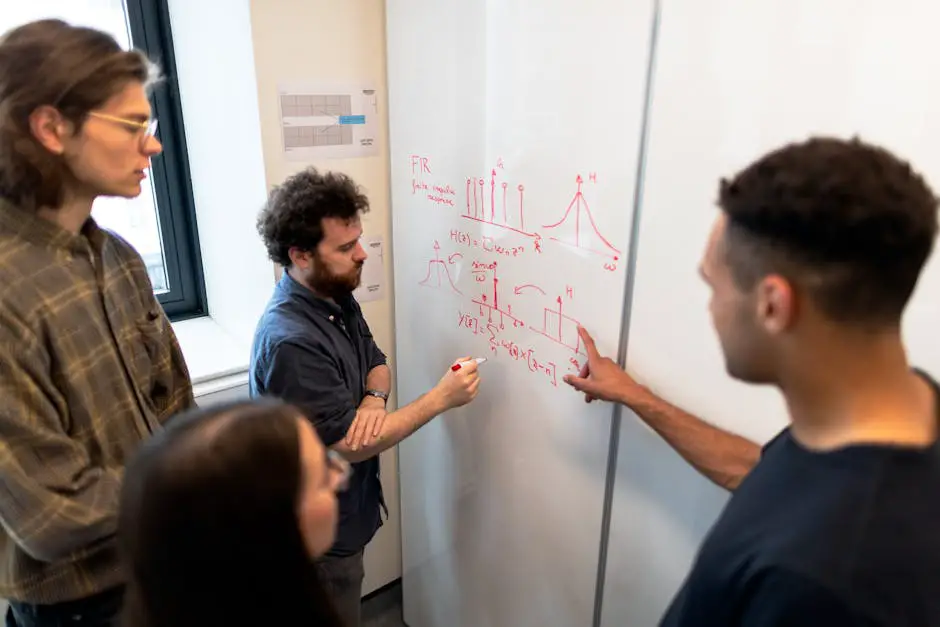Educational Requirements
What is the Eligibility for AI Engineer? AI engineers typically begin with a bachelor’s degree in computer science, data science, or statistics. This education builds core competencies in programming and data analysis. While other fields can serve as starting points, they are less common.AI engineers typically begin with a bachelor’s degree in computer science, data science, or statistics. This education builds core competencies in programming and data analysis. While other fields can serve as starting points, they are less common.
A master’s degree in computer science or data science is often beneficial, offering deeper insights into AI principles, machine learning techniques, and neural networks. These advanced programs enhance technical expertise and problem-solving capabilities.
Industry-recognized certifications can boost an AI engineer’s credentials. Microsoft, for instance, provides a certification for Azure AI engineers through the SWAYAM Plus platform. Such courses address specialized areas like machine learning and computer vision.
Gaining hands-on experience through internships and projects is equally important. Real-world experience refines an individual’s ability to apply theoretical knowledge practically. The combination of formal education, certifications, and hands-on experience prepares AI engineers for roles in various industries.

Technical Skills
Proficiency in programming languages such as Python, Java, and R is crucial for AI engineers. Python is favored for its simplicity, Java offers advantages in building scalable systems, and R is effective for statistical analysis and data visualization.
An understanding of algorithms and applied mathematics forms a foundation of AI engineering expertise. Machine learning models rely heavily on algorithms, making knowledge of probability, linear algebra, and calculus essential.
Mastery of machine learning frameworks like TensorFlow, PyTorch, and Keras is important. These frameworks provide the necessary environment to design, build, and train AI models efficiently.
Familiarity with big data technologies like Spark and Hadoop can enhance an AI engineer’s capability to handle large datasets. Knowledge of database management systems is also vital for organizing and retrieving data efficiently.
In this constantly changing field, AI engineers must remain flexible and open to continuous learning. The ability to adapt and integrate new advancements into one’s skill set is crucial for career progression and success in AI projects.

Nontechnical Skills and Business Acumen
- Effective communication: AI engineers often need to explain complex technical ideas to non-technical stakeholders. This skill extends to writing detailed documentation and reports.
- Critical thinking and problem-solving: AI professionals must assess situations swiftly and devise innovative solutions, adapting to the rapidly changing nature of AI technology.
- Teamwork: AI projects typically involve interdisciplinary teams. Successful AI engineers work effectively within these teams, leveraging collective expertise to drive projects to completion.
- Domain expertise: Understanding industry-specific nuances allows AI engineers to build applications that provide significant value and address real-world problems efficiently.
- Business acumen: Understanding the business context can guide engineers in prioritizing tasks that yield the highest value and align with organizational goals.

Certifications and Practical Experience
Certifications from platforms like Coursera or Udemy enhance an engineer’s skills and profile. These courses provide structured learning paths that focus on current AI technologies and methodologies.
Hands-on experience through internships or project work is crucial. Internships provide real-world situations where theoretical understanding is put into practice, allowing engineers to address the challenges of implementing AI solutions within a business environment.
Personal projects or open-source contributions serve as an effective means to gain practical experience. Creating and managing projects from inception to deployment develops critical project management skills and demonstrates an engineer’s ability to apply AI concepts innovatively.
The combination of certifications and practical experience prepares AI engineers for immediate employment and positions them for long-term career advancement.
In the rapidly advancing field of AI engineering, a balanced blend of technical prowess and practical experience is crucial. This combination prepares professionals for immediate challenges and sets the stage for future growth and innovation.


